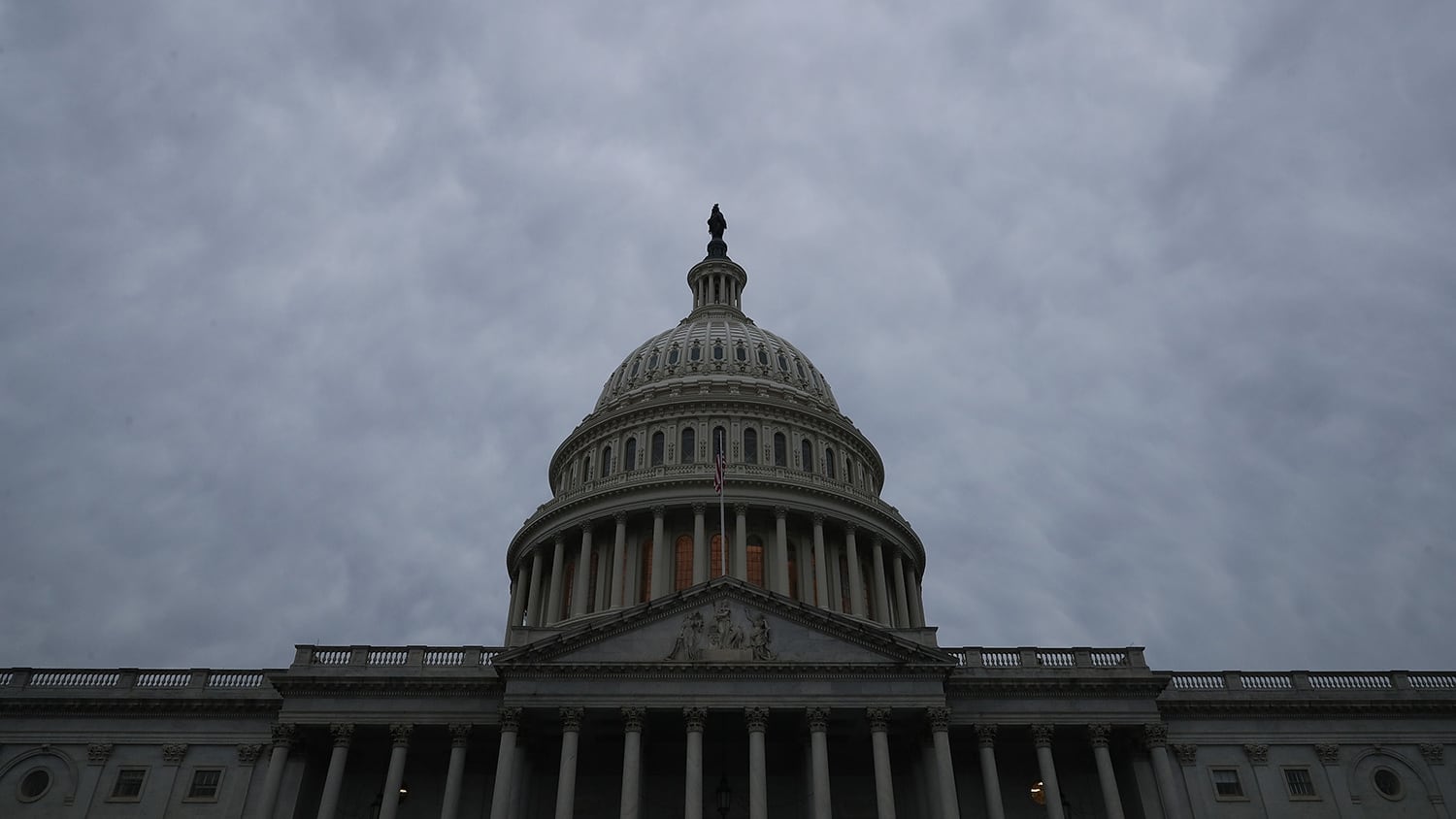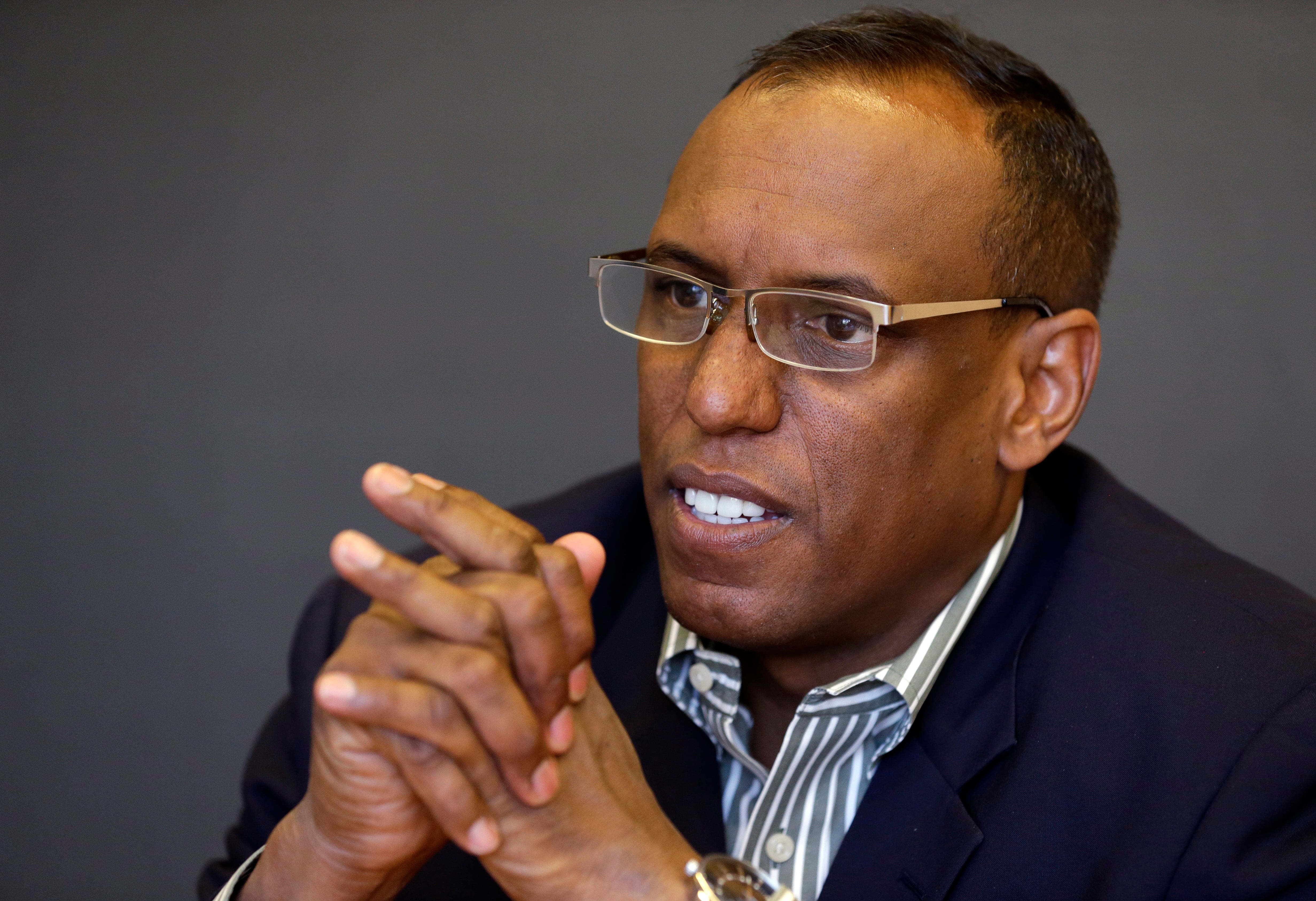A Tennessee senator is blocking the confirmation of four nominees to Veterans Affairs leadership posts over lingering complaints about the department’s lack of response on the cost and scope of pending legislation granting more generous benefits to victims of military toxic exposure cases.
The move by Sen. Marsha Blackburn, R-Tenn., has frustrated Democratic leaders on Capitol Hill and stalled department planning for the near-term. The nominees under hold includes Donald Remy, tapped to be the Deputy VA Secretary, the second-highest position in the department.
Blackburn declined to answer questions on the hold last week, and staff did not return requests for explanation of the move.
RELATED

On Tuesday, after Senate Veterans’ Affairs Committee Chairman Jon Tester, D-Mont., attempted to advance the nominations, Blackburn objected and criticized the department.
“[My constituents] are distressed by the lack of service that they receive from VA,” she said. “This is unacceptable. It has become the culture of the VA, and this is something that has to change.”
In a letter to VA Secretary Denis McDonough obtained by Military Times, Blackburn said she would not allow a full chamber confirmation vote on nominees because “the administration needs to fulfill its constitutional duty to provide information to Congress, especially when it includes the potential impact that legislation could have on millions of veterans.”
On Tuesday, she said she would continue the holds through July, the projected date when VA officials said they can provide the information.
Along with Remy, the hold is preventing confirmation and swearing in of Matthew Quinn, picked to serve as under secretary for memorial affairs; Maryanne Donaghy, nominated to lead VA’s whistleblower protection office; and Patricia Ross, selected to be assistant secretary for legislative affairs.
The practice of anonymous holds allows any individual senator to indefinitely delay nominees for any reason. Placing holds on nominees for issues related to their background or concerns over their past comments is common in the Senate, as is holding up nominees for unrelated policy question responses or overdue congressional inquiries.
But Tester criticized Blackburn for the move.
“If Senator Blackburn wants more information on how much legislation costs, maybe the senator shouldn’t hold the nominee tasked with getting that information from VA to Congress,” he said.
“If you want to hold VA accountable today, this is not the way to do it. If you want a VA that can function, then we have to have their staff in place.”
Blackburn’s concerns center on the Comprehensive and Overdue Support for Troops (COST) of War Act, which would lessen the documentation needed to prove the connection between overseas burn pits or other toxic contaminant exposures and veterans’ eligibility for disability benefits payouts later in life.
VA and congressional officials have not offered a cost estimate on the package, but several GOP lawmakers have warned that the benefits could run into the “hundreds of billions of dollars” in years to come.
The measure is one of two major toxic exposure bills under debate in Congress, and was passed unanimously last month by the Senate Veterans’ Affairs Committee. Blackburn is on the committee and voted to advance the measure (and advance the four nominees, at the same meeting) but expressed concerns about the potential cost and scope of the bill.
“This bill will require VA to completely reshape the way it processes toxic exposure claims and will establish a presumption of service connection for multiple diseases,” she said at the mark-up.
“Does VA have the capacity to absorb the provisions in this legislation? Probably not. How long will it take to implement it? These are simple answers to questions the committee has yet to receive from VA.”
RELATED

However, Blackburn at the time also agreed to drop her concerns and allow the bill and nominees to move ahead, with the understanding that committee officials were discussing the issues with department leaders.
That decision changed sometime in the last month.
In a statement, VA press secretary Terrence Hayes said, “it is extremely important and necessary that these leaders arrive at VA as quickly as possible. They serve in critical roles at the department, roles that will only help us in our efforts to deliver the absolute-best health care and access to benefits to veterans.”
Tester said he will continue to fight to move the nominations.
“If we don’t want to confirm well qualified nominees, then why don’t we just shut down the VA?” Tester asked. “Doesn’t make a lot of sense to me. And in the process, veterans suffer.”
Leo covers Congress, Veterans Affairs and the White House for Military Times. He has covered Washington, D.C. since 2004, focusing on military personnel and veterans policies. His work has earned numerous honors, including a 2009 Polk award, a 2010 National Headliner Award, the IAVA Leadership in Journalism award and the VFW News Media award.




